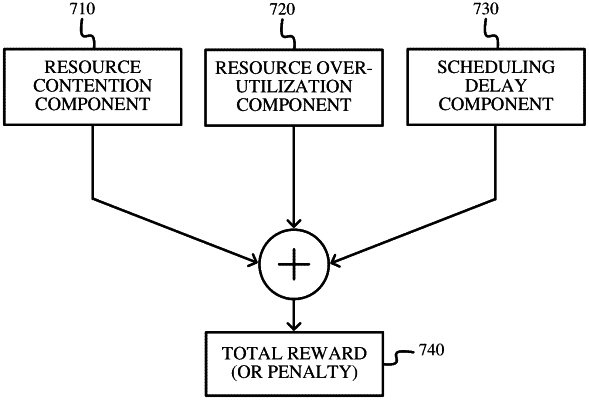| CPC G06N 3/08 (2013.01) [G06F 9/4881 (2013.01); H04L 67/51 (2022.05); H04L 67/60 (2022.05)] | 17 Claims |

|
1. One or more non-transitory computer readable storage media having a reinforcement-learning agent stored thereon for orchestrating scheduling of resource requests initiated by applications on a shared compute infrastructure, the reinforcement-learning agent comprising:
a deep neural network configured to approximate a scheduling policy; and
program instructions that, when executed by one or more processing systems of a computing apparatus, direct the computing apparatus to:
generate a scheduling map representing (i) for each node of a plurality of nodes of the shared compute infrastructure, how classifications of the resource requests scheduled on the node change over time, and (ii) classifications of incoming resource requests that have yet to be scheduled; and
feed the scheduling map into the deep neural network to predict one or more nodes of the plurality of nodes on which to schedule the incoming resource requests; and
schedule the incoming resource requests on the predicted one or more nodes; wherein the reinforcement-learning agent is configured to update the deep neural network by penalizing predictions that result in resource contention, scheduling more resource requests than a node can handle, and delay in moving scheduled resource requests out of a waiting queue.
|